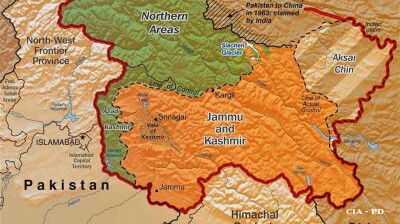In late summer, stalls at North Macedonia’s popular local markets are heaped with a variety of seasonal fruits and vegetables, from peaches, plums and apricots, to apples and melons. This is the time of year Macedonians traditionally preserve food for winter, and stalls are stocked with tomatoes, cucumbers, aubergines, courgettes and red peppers of all kinds — the ingredients used to make savoury ajvar spread. But for a number of items, prices have risen to levels many citizens say are unsustainable given the country’s modest living standards.
Watermelons are still a bargain at just €0.3-0.4 per kilo, but figs, whose season has only just begun, are much pricier at nearly €4 per kilo. Shoppers complain that staples such as apples, peppers and tomatoes have doubled or even tripled in price compared to last year.
Local growers and vendors attribute much of the increase to a disastrous harvest. “This year, the entire fruit harvest was destroyed due to frost and ice, especially in March, which hit the entire territory of [North] Macedonia,” one fruit seller at Skopje’s open-air marketplace told bne IntelliNews.
Another vendor noted that in addition to climate-related damage, fewer young people are willing to take up agricultural work. “Nobody wants to engage in agriculture lately,” he said.
North Macedonia’s Ministry of Agriculture, Forestry and Water Management also confirmed to bne IntelliNews that frost in spring reduced harvests of apples, peaches, plums and apricots, even though wheat production increased to around 300,000 tonnes.
The impact is visible in consumer prices. In June, apricots, which in neighbouring Greece sold for about €1 per kilo in June, were priced as high as €4 in Skopje markets.

Apples — traditionally abundant in North Macedonia — are now fetching €2-2.5 per kilo, up sharply from around €0.50 in the previous years.
"Prices of fruits and vegetables have soared, forcing me to buy them by piece rather than by the kilo as before," one vendor said.
The season for wild berries is still ahead, but prospects are poor. On the slopes of Mount Jablanica, usually abundant with blackberries at this time of year, there were no signs of the fruit in early August, a result of unfavourable climate conditions.
For many households, preparing traditional winter preserves is becoming a luxury. Farmers report that the purchase price for red bell peppers used to make ajvar is over MKD40 and the retail price is about MKD120 or nearly €2 per kilo. Tomatoes are still selling for more than MKD100.
Drought and high costs compound the problem
Farmers say extreme weather, including the summer drought, has further reduced yields. Retailers, they add, often impose large mark-ups that push final prices even higher.
North Macedonia is highly dependent on food imports, leaving it exposed to global commodity swings and regional price fluctuations. Weak infrastructure, fragmented small-scale farms and outdated irrigation systems have prevented domestic agriculture from scaling up to meet rising demand.
Figures from the state statistics office reveal the scope of the problem. In July 2025, compared with July 2024, prices in agriculture increased by 3.1% for inputs (production costs) but soared 31.8% for outputs (farm products). The value of goods consumed in agriculture rose by 2.8%, while investments in agriculture were up 6.9%.
On the output side, crop production prices surged 39.9% year-on-year, while livestock production rose 6.5%. Vegetable prices jumped 63.3%, and fruit and grape output prices were up 33.2%.
For Prime Minister Hristijan Mickoski this is a positive trend for farmers. He said in a government statement on August 20 that agricultural product prices have risen by over 30%, far outpacing the roughly 3% increase in farmers’ input costs.
“The costs for producing a crop have gone up just slightly, while the selling price has increased about ten times more. This is positive for farmers, boosting income, supporting agricultural development, increasing food supply, and reducing imports,” Mickoski explained.
At the same time, inflation in North Macedonia remains among the highest in the Western Balkans. The country posted an annual inflation of 4.8% in July, slightly up from 4.5% in June, according to official data from the statistics office. Prices of food and non-alcoholic beverages increased the most in July, by 6.8% y/y.
Government and ministry measures
In recent years, the government has sought to ease pressure on consumers through price freezes and special programmes such as the “New Year’s Basket” of discounted essentials. But measures only had a brief and negligibly small impact, and prices rebounded quickly once the programmes ended.
North Macedonia’s farm ministry stressed that while it does not set product prices, it is working to support farmers through direct payments and rural development funds. These provide financing for modern equipment such as tractors, irrigation systems and protective materials.
“Through public calls, farmers are supported in modernising their equipment, which helps ease agricultural production and enables them to increase output,” the ministry’s press office told bne IntelliNews.

Meanwhile, supermarkets in North Macedonia have recorded some of the highest profits per employee in the region. Consumer anger over perceived profiteering triggered boycotts of major retail chains beginning in January 2025.
Consumers often find domestic products more expensive than imports. That was the reason for the farm ministry to launch a campaign “Macedonian Best: Our Tradition, Our Pride”, aimed at promoting domestic products, strengthening rural areas and improving consumer access to local food.
Daily survival
Analysts argue that the crisis reflects deeper structural issues. Small family-run farms dominate the agricultural landscape, with limited access to quality seeds, modern irrigation, and commercial distribution channels. Without large-scale investment, North Macedonia will remain vulnerable to climate shocks and market swings.
For ordinary citizens, however, the debate is less about long-term policy and more about daily survival. “Prices of fruits and vegetables are really high this year,” a Skopje resident told bne IntelliNews. “My relatives in Australia told me that local fruits are very cheap there, unlike here.”
As autumn approaches, households worry about how to afford winter staples such as ajvar, pickled vegetables and fruit preserves, for storage. For many, these traditional practices are becoming increasingly out of reach — an unsettling sign that food security in North Macedonia is under mounting strain.
Features

BEYOND THE BOSPORUS: Prosecutors make move on “fictitious export schemes” of Istanbul Gold Refinery
Observers point to intra-regime gangs seizing each other’s wealth, remember Erdogan’s “Hello Fatih” phone calls and ponder whether wanted man Turgay Ciner is in London.

Taliban visit to India upsets Pakistan, signals New Delhi's changing Afghan posture
Coinciding with the visit, Pakistan conducted military operations inside Afghanistan, followed by airstrikes on multiple border towns. Retaliation against Pakistan's police training facilities and border outposts followed.

Pakistan’s India-shaped chip on the shoulder, and why a peaceful coexistence is as elusive as ever
Pakistan must first redefine how it sees India - not solely as a threat to be contained but as a neighbour with whom coexistence is unavoidable. That psychological leap has eluded generations of Pakistani leaders.

Trump shocked by China’s move on rare earths, threatens more 100% tariffs
"Some very strange things are happening in China!" Trump wrote in a post on his Truth Social account on October 10, adding "They are becoming very hostile."




